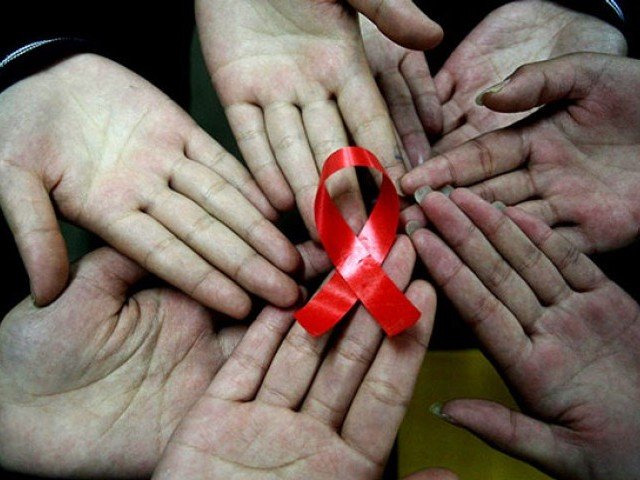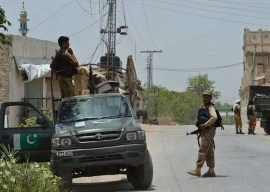
With the Omicron variant of COVID-19 being classified as a potential threat, countries are urging their unvaccinated populations, especially those immunocompromised, to get inoculated fast to avoid virus related catastrophes.
The National Command and Operation Center (NCOC) has also stressed upon the need to get vaccinated to avoid contracting the new variant - only 52.3 million people are currently fully vaccinated as per the NCOC website. However, in Khyber Pakhtunkhwa (K-P) where only 30% of its total population is fully vaccinated, getting a jab is difficult, in particular, for those with human immunodeficiency virus (HIV) and acquired immunodeficiency syndrome (AIDS).
Since those with HIV/AIDS fall into the immunocompromised category of individuals, they have been directed to get a jab of the Pfizer vaccine but many in the provincial capital with HIV/AIDS have avoided getting inoculated so far for fear of breach of privacy. While there is no data on the number of fully or partially vaccinated HIV/AIDS patients, The Express Tribune learned that, in K-P, 6,364 patients of the disease are registered with the AIDS Control Program.
The current vaccination process for carriers of the deadly disease is to obtain a slip indicating that they are immunocompromised from a Family Care Center (FCC) and then get a jab at one of the handful number of vaccination centers set up in Peshawar, as per a senior official at the AIDS Control Program. The official, while talking to The Express Tribune under the condition of anonymity, said, “many, however, are reluctant to go outside the FCC for vaccination.” The official advised that those with HIV/AIDS should be allowed to get jabbed at their designated FCC, since this was a place they felt comfortable at, instead of a vaccination center so that their illness remains undisclosed.
Amongst those irked by the current process is Fatima, who contracted the disease through her husband. “I already have to lie to my in-laws whenever I go for my monthly checkup at the FCC. I am afraid obtaining a slip for vaccination will disclose my illness to them,” she lamented. Fatima, who refused to give her real name, is a mother of three children. She in said that she was highly at risk and had been doing her utmost to avoid people so that she does not contract the superspreader. “My in-laws keep asking why I refuse to attend social gatherings with them but I cannot tell them the truth,” a teary Fatima said, further adding that only her husband was aware of her HIV/AIDS positive status but he was overseas.
Muhammad Rasheed Tajik, assistant director at the AIDS Control Program, when asked about the predicament of those affected with the disease informed this reporter that privacy of the HIV/AIDS patients was never compromised. “Yes, people do have fear but we will not disclose their illness to anyone and are doing whatever is possible to get these immunocompromised individuals inoculated against the virus,” Tajik told The Express Tribune.
While K-P figures out a strategy to get those with HIV/AIDS to vaccination centers, the National AIDS Control Programme (NACP) estimates that 224,000 individuals across the country are infected with the deadly disease out of which only 46,912 are registered with the programme and even their vaccination status is unknown.
Published in The Express Tribune, December 8th, 2021.


1732020599-0/BeFunky-collage-(73)1732020599-0-165x106.webp)
1731926127-0/zayn-(1)1731926127-0-165x106.webp)
1732018399-0/BeFunky-collage-(72)1732018399-0-165x106.webp)













COMMENTS
Comments are moderated and generally will be posted if they are on-topic and not abusive.
For more information, please see our Comments FAQ